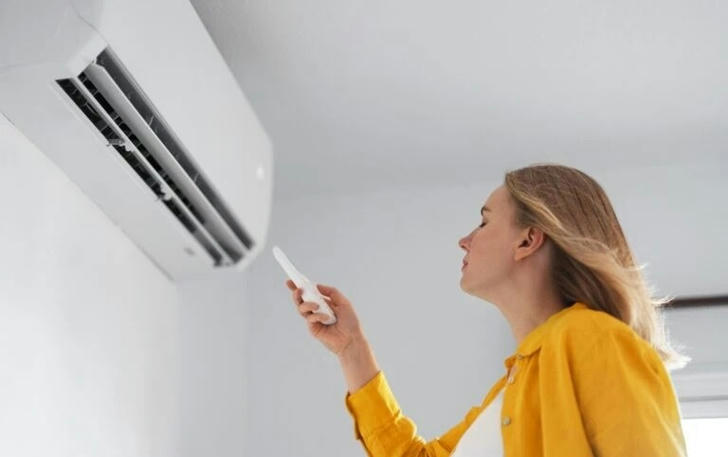How To Choose An Affordable And Reliable Quality Air Conditioner?
Welcome to our comprehensive guide covering how to choose an air conditioner, secure attractive pricing, understand additional costs, maintain your unit properly, and leverage government energy tax rebates. This guide is designed for US consumers seeking reliable, cost-effective cooling solutions.

How to Choose an Air Conditioner
Selecting the right air conditioner is the first step toward long-term savings and reliable cooling. With numerous models available, consider these key factors:
Size and Capacity
- BTU Rating: Choose an air conditioner with the correct British Thermal Unit (BTU) rating for your room size. An undersized unit will struggle on hot days, while an oversized unit may lead to frequent cycling and higher energy costs.
- Room Dimensions: Measure your room to determine the required capacity. Most manufacturers provide guidelines based on room area.
Energy Efficiency
- Energy Star Certification: Look for models with ENERGY STAR® ratings to ensure lower energy consumption and long-term savings.
- Inverter Technology: Air conditioners with inverter technology can adjust their speed to maintain optimal temperatures, reducing energy waste.
Features and Installation
- Smart Features: Many modern units come with Wi-Fi connectivity and remote control apps. This can simplify temperature management and scheduling.
- Installation Requirements: Consider the complexity of installation. Some models require professional installation while others can be set up by the user.
- Noise Levels: Check decibel ratings, especially if the unit will be installed in a living space or bedroom.
Price Discounts and Special Offers
Securing a discount can significantly reduce your upfront cost. Discounts are often influenced by seasonal trends, inventory clearance, and manufacturer promotions.
Seasonal and Clearance Discounts
- Off-Peak Purchases: Consider buying during spring or fall when demand is lower. Retailers often slash prices to clear out older inventory.
- End-of-Season Sales: As summer ends, many stores reduce prices to make room for new models.
Manufacturer Rebates and Bundle Offers
- Rebates: Manufacturers sometimes offer mail-in rebates or online promotions. Sign up for newsletters to stay informed.
- Bundle Deals: Some retailers offer packages that include installation services or extended warranties at a reduced overall price.
Understanding Additional Costs
While the listed price of an air conditioner might seem attractive, it’s important to consider additional costs that can affect your overall investment.
Installation Fees
- Professional Setup: Many models require professional installation. Installation fees can vary widely, so request multiple quotes.
- Complexity of Setup: Units requiring special modifications or ductwork may incur extra charges.
Extended Warranties and Service Plans
- Warranty Options: Some retailers offer extended warranty plans that cover repairs beyond the manufacturer’s guarantee. Evaluate if the additional cost is justified by the potential savings on future repairs.
- Service Contracts: Regular servicing plans may be offered at a discount when bundled with your purchase. These contracts ensure timely maintenance and can prevent costly repairs later.
Hidden Fees and Taxes
- Delivery Charges: Check if there are extra fees for shipping or delivery, especially for larger units.
- Installation Permits: Some regions require permits for installation, which could add to your costs.
The Importance of Maintenance
Proper maintenance is crucial for maximizing the lifespan and efficiency of your air conditioner. Regular upkeep not only ensures optimal performance but also helps in identifying potential issues early.
Routine Checks and Cleaning
- Filter Replacement: Change filters every 1-3 months depending on usage and manufacturer recommendations.
- Seasonal Servicing: Schedule a professional inspection before the cooling season begins. This can include cleaning coils, checking refrigerant levels, and inspecting electrical components.
- DIY Maintenance: Simple tasks such as cleaning the external unit and ensuring unobstructed airflow can be performed by homeowners.
Long-Term Benefits
- Energy Savings: A well-maintained unit operates more efficiently, reducing energy consumption and lowering bills.
- Extended Lifespan: Regular maintenance can extend the life of your air conditioner, delaying the need for a costly replacement.
Practical Tip
Create a maintenance checklist and set reminders. This proactive approach can lead to significant savings over the life of your unit.
Government Energy Tax Rebates
Many states and local governments offer tax incentives for purchasing energy-efficient appliances, including air conditioners. These rebates are designed to reduce your overall cost and promote energy conservation.
Eligibility Criteria
- Energy Efficiency Standards: Typically, the unit must meet certain ENERGY STAR® criteria or similar benchmarks.
- Purchase Date: Rebates may only apply to purchases made within a specific timeframe.
- Documentation: Keep receipts, energy ratings, and any certification details handy when applying for a rebate.
How to Apply
- Local Energy Offices: Check with your state’s energy department or local government website for detailed guidelines.
- Online Applications: Many programs now offer streamlined online applications where you can upload necessary documents.
- Professional Assistance: Some retailers offer assistance with the rebate application process when you purchase an eligible unit.
Real-Life Example: Emily Rivera’s Tax Rebate Benefit
Emily Rivera, a resident of Denver, Colorado, upgraded her air conditioner to an ENERGY STAR® rated model. After the purchase, she applied for a government rebate program that offered a tax reduction of nearly 15% of the unit’s cost. Emily’s proactive documentation and timely application resulted in significant savings, lowering her overall expenditure. Her case illustrates the potential financial benefits of taking advantage of available government incentives.
Summing Up the Key Points
- Choosing Wisely: Focus on proper sizing, energy efficiency, and necessary features.
- Price Discounts: Capitalize on seasonal sales, manufacturer rebates, and bundle deals.
- Additional Costs: Always account for installation, warranty, and potential hidden fees.
- Regular Maintenance: Keep your unit efficient and extend its lifespan through routine care.
- Tax Rebates: Leverage government incentives to reduce your final cost.
Final Thoughts
Smart consumers take a holistic approach when investing in an air conditioner. By understanding selection criteria, discount opportunities, additional expenses, maintenance, and government rebates, you can make a well-informed decision that saves money and enhances comfort. Happy shopping and stay cool!
